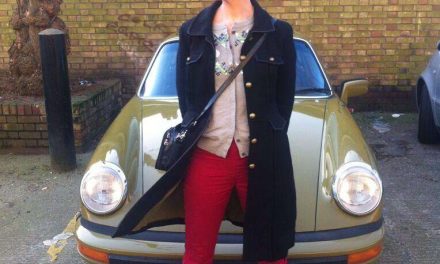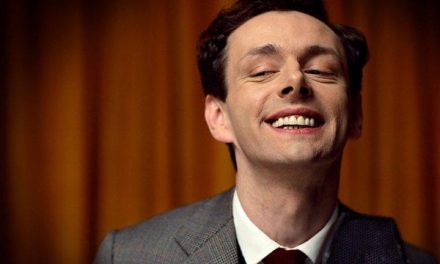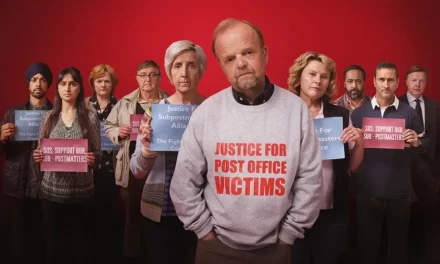WARNING: unbalanced footnote start tag short code found.
If this warning is irrelevant, please disable the syntax validation feature in the dashboard under General settings > Footnote start and end short codes > Check for balanced shortcodes.
Unbalanced start tag short code found before:
“Keegan Joice) is abandoning university to do aid work in the Congo. Cleaver has no money, no place to live, no clients, and no car or mobile phone to use. For this episode he experiences what it is like to be materially poor, have no place to stay, and to have few options to change his course. Clea…”

Rake is an Australian television series that airs on ABC1 on Sunday nights. Now into its third series, it centrally features Richard Roxburgh as Rake Cleaver Greene, a charismatic but anti-establishment, criminal defence barrister. Cleaver is both a loveable rogue – a barely disguised version of the larrikin – and a ‘coke-addled, sexual addict’ whose moral and ethical codes are repeatedly questioned and questionable, providing him with the narrative material to develop as a character, as a fuller human being. Cleaver often takes on cases for the criminal underclass, aware of their guilt, but wins by guile and brilliance, as well as through deception and corruption. Life in Rake seems predicated on rule breaking and disguise. And yet this misrule is a problem for the series, and for Cleaver, if in complex and perhaps contradictory ways.
Cleaver has structural economic and cultural capital, allowing him to ‘pass’ through and into all sorts of identity positions and class, gender, and sexual relations. However, by Series 3, he has supposedly hit rock-bottom: in prison with little chance of parole; his marriage has failed; his son is estranged from him; his sexual and romantic partners have abandoned him; and his legal practice is in ruins. Nonetheless, in the brief reading of Episode 2 that will follow, broadcast on Sunday 16 February 2014, I want to show how Cleaver actually is given the power to overcome his obstacles, reinforcing his high class and elite occupation position, while other characters, particularly Malcolm Finnane (Dan Wyllie), his cell mate in prison, have little or none.
I will also touch upon the high/low cultural binary that this episode is largely constructed out of, since it takes a critical poke at popular culture, reality TV, and celebrity as it does so. The episode is also awash with infidelity and border-crossings if ultimately not to celebrate them but to show how destructive they can be to the family unit. Rake embodies the very arteries and veins of the patriarchal, neo-liberal imagination, of Australia’s own corrosive class and political landscape. Rake is also one of those drama-comedies where the tone can shift quiet violently: Malcolm’s suicide by opera at the end of the episode is one such tragic moment, confirming his powerlessness in the face of the ideological and economic forces of modern life, and of the subtextual forces of the programme itself.

At the beginning of the episode Cleaver is languishing in prison with little chance of parole. His cell mate Mal, however, secures his, and leaves to follow his ‘dream’ of becoming an opera singer, spurred on by Cleaver’s (ironic) endorsement, ‘follow your dream, mate, follow your dream’. Mal’s relationship with Cleaver is (at least) homoerotic and based on a love he has never been able to share before; he kisses him at one stage, and we see them wake up in the same bunk, although this is played for comedy laughs. Cleaver, by contrast, is largely friendly with Mal as a means-to-an-end, to survive prison, and to plot his escape – although by episode’s end we are meant to see a shift in his affection for him, as he breaks down and sobs at Mal’s suicide. While Mal is marked as ‘damaged’, a product of abuse and an uncaring system, Cleaver moves across identity positions at will, to secure his own needs, even if we are meant to see him ‘soften’ as the programme/series develops.
Through inside information about one of the Judge’s illegal or ill-begotten retirement fund, Cleaver is able to secure parole – an indication of his cultural power within the machinery of the system. Mal spent 17 years in prison before his release; Cleaver can negotiate release after 12 months. On his release, rather than there being a supposed upturn in his fortunes, Cleaver suffers a further series of falls and let downs: his best friend Barney (Russell Dykstra) is suffering from cancer, Scarlet (Danielle Cormack) has taken up his practice, Nicole (Kate Box) his former Secretary is living in his flat whilst bringing up her and Barney’s love child, his ex-wife Wendy (Caroline Brazer) and her partner are selling their family house and getting married, whilst his estranged son Fuzz ((Keegan Joice) is abandoning university to do aid work in the Congo.
Cleaver has no money, no place to live, no clients, and no car or mobile phone to use. For this episode he experiences what it is like to be materially poor, have no place to stay, and to have few options to change his course. Cleaver experiences, then, what it is like to be lower working-class, a part perhaps of the under-class. Again, though, these are moments of passing, of identity performance: the narrative demands of the series, the delicacies of plot and character development, and the ideological temperature of the programme will all ensure that Cleaver will rise again. He is in fact a neo-liberal man hiding in the pretend lights of active democratic agency and unrivaled, ribald transgression.

Supposed transgressions litter the show: drugs, alcohol, violence, infidelity, promiscuity, fakery and forgery are the engines of character relations and narrative development. Yet they don’t ultimately serve to undermine patriarchy and regulated capitalist life. To the contrary, they serve to show how such crimes and misdemeanors poison it. In this episode, Cleaver keeps repeating the line, ‘I want my fucking old life back’. By this he really means his economic status, his cultural capital, his practice, his friends, wife and family. His wayward life has brought him despair and so the moral lesson becomes, in part, one that sanctifies those things he has lost. It is call to return to the nuclear family even as it shows it in ruins and full of ruination.
Mal, of course, is not ultimately allowed to pass through anything; his performance is built on damage and a desire to escape his past, to begin again, which he is not allowed to do. On leaving prison he goes in search of his opera-singing dream, and auditions for Aussie’s Gotta Sing. Wanting to sing the Aria from Tosca, he is instead coerced into singing the part of Valjean from the musical Les Misérables. The choice is both a populist one, and an echo of his criminal past, of being released on parole.
Through this scenario, Rake is able to set up a snotty high/low power-saturated cultural binary: the populist, vulgar musical verses serious opera; low-brow reality TV’s lust for ratings through spectacle and scandal (Mal’s ‘shocking secret’) verses Mal’s own desire to sing because of the beauty of it; and superficial, oily celebrity verses art and the complexities it holds.
When it is Mal’s turn to audition live on TV after getting a favoured ‘pass card’, he is further set up by the panel: ‘you are not exactly young’ (he falls silent, frozen before the spot-lights)…‘’you were a mime artist…’ there is audience laughter… (he manages some broken words)… ‘I just wanna sing… which is followed by the lead panel member shouting, ‘murder your father… try not to murder the song!’. The aesthetics of this render Mal a victim before a glitzy panopticon that recognises he may be ‘good for eight weeks’ viewing. According to Rake’s reading of the reality contest show, all Mal is, is a cheap and throw-away commodity. The programme Rake of course is serious drama-comedy, actively creating the conditions for its own ‘quality’ reception.
Mal storms off the stage, broken, enraged, and wanting to only sing ‘real opera’. The scene quickly cuts to Cleaver’s former apartment where he is now holed up, to receive a call from Mal, threatening suicide. Cleaver had promised to be at the audition so he is again positioned as having let someone down, but is then given the chance for redemption.
The opera suicide that follows is incredibly powerful in its own dramatic terms but also because it confers and confirms the programme’s ideological position with regards to identity passing and opportunity, even as it tries to offer the opposite. Mal is stood on the bridge railings, barely holding on. He says to Cleaver when he arrives, ‘some lives don’t change do they Cleave, some lives never really get started, they are fucked, fucked up from the beginning’. Cleaver responds by shouting back, ‘don’t give them that power’, something of course he can readily negotiate because of his elite position within the system.
Mal now begins to sing the aria from Tosca, and his voice rises with beautiful power and accuracy. It is the programme’s reveal and revelation – Mal can actually sing opera, something that is meant to be seen as surprising to us. It is as if all of the pain of his life is being exorcised in that moment, and the beauty of his inner self momentarily exonerated. Rake responds, ‘keep singing, that was fucking amazing’, but Mal will jump to his death shortly, the programme, its ideological frames, leaves him nowhere else to go. This is television opera, Tosca in the modern city, and he has to die.
Mal has to die because the programme wants to show how unfair and damaging the system is presently. And yet it does this against the binary of Cleaver. Cleaver can and will pass, negotiate various identity positions, he will rise (and has risen in the very next episode) again. There is a huge fault line, then, in the programme’s positioning around power, class, gender, and privilege. It actually gives Mal nowhere to run, while giving its star, main narrative agent the power to do what and when he pleases. There is little real criticism of this – Cleaver is the man of the times, fucking with the identities he tries on.
One final point, that the programme is barely conscious of but enunciates nonetheless, even if in contradictory terms. Working-class people have access to so many cultural forms and practices – that Mal knows and can sing opera should be no surprise to anyone. That the programme gives him this knowledge and ability nonetheless jars against its critique of popular culture that it also registers. Popular culture is actually mass culture in Rake, for the unwashed masses, but people like Mal are somehow blessed and cursed at the same time for being able to take on these higher order art forms. Perhaps it is the beauty of opera that kills Mal since in the programme’s troubled view of him, it isn’t his to sing.
I gave jewels for the mantle of Madonna,
and offered songs to the stars and heaven,
which thus shone with more beauty.
In this hour of grief
why, why, Lord–
ah, why do you reward me thus?
Sean Redmond is an Associate Professor of Media and Communication at Deakin University, Melbourne, Australia. He writes on stardom and celebrity, science fiction, screen aesthetics, and authorship. His latest book is The cinema of Takeshi Kitano, released by Columbia University Press in 2013.
Sean Redmond, Deakin University, Melbourne: s.redmond@deakin.edu.au





